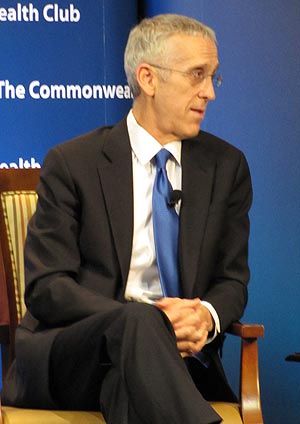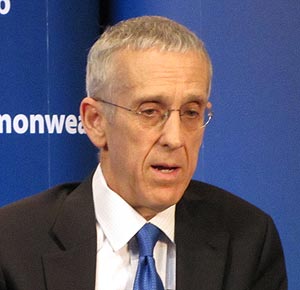February 19, 2014, San Francisco
Ambassador Todd Stern, United States Special Envoy for Climate Change, appeared with Greg Dalton of Climate One at the Commonwealth Club for a discussion titled “Going to Paris”.
The official text transcription and audio podcast is available at Climate One.

“the biggest single thing in the President’s very strong climate action plan are probably the new regulations that EPA is working on with respect to power plants†~ Ambassador Todd Stern

“I was in China with Secretary Kerry and he announced a short joint agreement that includes the notion of the U.S. and China collaborating, essentially, in the development of our post 2020 plans, obviously relative to the 2015 agreement†~ U.S. Special Envoy for Climate Change Todd Stern
Select Excerpts and Quotes
“Kyoto was effectively applicable just to the developed countries. This was going to be an agreement that was going to be applicable to all countries, and that’s quite a central part of it.â€
“It is an agreement that’s going to have legal force, that’s going to be legal in some fashion but it might be legally binding in every respect or it might be something or somewhat different from that. And countries have put forth different ideas on that, actually. To get back to your basic question, I think China and other countries are conceptually on board with doing an agreement but there are a lot of devils in a lot of details.â€
“The standards that the President already put in place back in I think announced in 2009, I think, for the broad vehicle fleet are hugely ambitious. …is in the process of taking our vehicle fleet from 27 miles per gallon, a number which it had basically been stalled out for about 20 years, and is going to 54. I mean, that’s a huge move for the transportation sector which is about a third of our emissions.â€
“But the big ticket is that we’ve got to have a political system where our representatives recognize that this is something that needs to be acted on. And so our legislatures, members of Congress, hearing the message that voters care about this is – at some level, the biggest thing.â€



























































